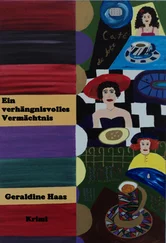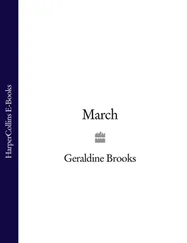Since Bradford Hall had a moderately large staff, I was only required to serve at table for parties of some size or importance. The Hall had a great room that looked very well when arranged for dining. The two big bacon settles were pulled out from the walls, their dark oak polished to a rich, black gleam. At leaf-fall, just after the hogs were slaughtered, the scent of the new-cured flitches hanging inside could be overpowering. But by late summer, the bacon was long eaten and only a faint and pleasant smoky aroma remained beneath the fresher scents of beeswax and lavender. Silver shone in the low light and the canary, glowing in large goblets, warmed even the cold faces of the Bradfords. No one, of course, ever thought to tell me who the guests were that I would be waiting upon, and so I was pleased to see at least the friendly faces of the Mompellions among the dozen at that day’s dinner.
The colonel’s pride was gratified by the presence of Elinor Mompellion at his table. For one thing, she looked exquisite that afternoon in a simple gown of creamy silk. A few fine pearls gleamed in her pale hair. But more than her delicate beauty, Colonel Bradford appreciated her substantial connections. She had been a member of one of the oldest and most extensively landed families in the shire. It was noised about that in choosing Mompellion, she had spurned another suitor who might have made her a duchess. Colonel Bradford would never be able to fathom such a choice. But then, there was so much about her that eluded him. All he grasped was that a connection with her enhanced his own standing, and to him that was all that mattered. As I dipped to take away her soup plate, Elinor Mompellion, seated to the colonel’s left, placed a hand lightly on the forearm of the London gentleman to her right, interrupting the flow of his prattle. She turned to me with a grave smile. ‘I hope you are feeling quite well after your dreadful night, Anna.’ I heard the ring of the colonel’s butter knife dropping onto his plate and the hiss of his indrawn breath. I kept my eyes on the dishes in my hand, afraid to risk a glance in his direction. ‘Quite. Thank you, ma’am,’ I murmured quickly and slid on to clear the next plate. I feared if I gave her a second’s chance she would continue to converse with me, causing Colonel Bradford to expire from shock.
At the Hall, I had learned to keep my mind on my duties and let the talk, which was mostly trivial, wash over me like the twittering of birds in a distant thicket. At that large table, little of the conversation was general. Most people exchanged empty pleasantries with those seated next to them, and the result was a low buzz of mingled voices, broken occasionally by Miss Bradford’s affected, mirthless laugh. When I left the room with the meat platters, that was the state of things. But by the time I returned, carrying desserts, all the candles had been lit against the gathering dark and only the young Londoner next to Mrs. Mompellion was speaking. He was a style of gentleman we did not much see in our small village, his periwig so large and elaborate that his rather pinched, white-powdered face seemed lost beneath its mass of tumbling curls. He wore a patch on his right cheek. I expect that whichever of the Bradfords’ servants attended his toilet had been unfamiliar with how to affix such fashionable spots, for it flapped distractingly as the young man chewed his food. I had thought him rather absurd on first glimpse, but now he looked grave, and as he spoke, his hands fluttered from lace cuffs like white moths, throwing long shadows across the table. The faces turned towards him were pale and alarmed.
‘You have never seen anything like it on the roads. Innumerable men on horseback, wagons, and carts bulging with baggage. I tell you, everyone capable of leaving the city is doing so or plans to do it. The poor meantimes are pitching up tents out on Hampstead Heath. One walks, if one must walk, in the very centre of the roadway to avoid the contagion seeping from dwellings. Those who must move through the poorer parishes cover their faces in herb-stuffed masks contrived like the beaks of great birds. People go through the streets like drunkards, weaving from this side to that so as to avoid passing too close to any other pedestrian. And yet one cannot take a hackney, for the last person inside may have breathed contagion.’ He dropped his voice then and looked all around, seeming to enjoy the attention his words were garnering. ‘They say you can hear the screams of the dying, locked up all alone in the houses marked with the red crosses. The Great Orbs are all on the move, I tell you: there is talk that the king plans to remove his court to Oxford. For myself, I saw no reason to tarry. The city is emptying so fast that there is little worthwhile society to be had. One rarely sees a wigg’d gallant or a powdered lady, for wealth and connection are no shield against Plague.’
The word dropped like an anvil among the tinkling silverware. The bright room dimmed for me as if someone had snuffed every candle all at once. I clutched the platter I carried so that I would not drop it and stood stock-still until I was sure of my balance. I gathered myself and tried to steady my breath. I had seen enough people carried off by illness in my life. There are many fevers that can kill a man other than the Plague. And George Viccars hadn’t been near London in more than a year. So how could he have been touched by the city’s pestilence?
Colonel Bradford cleared his throat. ‘Come now, Robert! Do not alarm the ladies. The next thing they will be shunning your company for fear of infection!’
‘Do not joke, sir, for on the turnpike north of London, I encountered an angry mob, brandishing hoes and pitchforks, denying entry to their village inn to any who were travelling from London. It was a low place, in any wise, nowhere I would have sought shelter even on the filthiest of nights, so I rode onwards unmolested. But before long, to be a Londoner will not be a credential worth owning to. It will be surprising how many of us will invent rusticated histories for ourselves, mind me well. You’ll soon learn that my chief abode these last years was Wetwang, not Westminster.’
There was a little stir at this, for the town the young man was mocking was a good deal bigger than the one in which he was presently being entertained. ‘Well, good thing you got out, eh?’ said the colonel, to cover the lapse. ‘Clean air up here, no putrid fevers.’
Down the table, I noticed the Mompellions exchanging meaning looks. Trying to still my shaking hands, I set down the dessert I carried and stepped back into the shadows against the wall. ‘It’s hard to believe,’ the young man continued, ‘but some few are staying in town who have the easy means to go. Lord Radisson – I believe you are acquainted with his lordship – has been bruiting it about that he feels it his duty to stay and “set an example.” Example of what? A wretched death, I warrant.’
‘Think of what you are saying,’ Mr. Mompellion interrupted. His voice – rich, loud, grave – cut off the Bradfords’ airy laughter. Colonel Bradford turned to him with a raised eyebrow, as if to censure rudeness. Mrs. Bradford tried to turn her titter to a cough. Mr. Mompellion continued, ‘If all who have the means run each time this disease appears, then the seeds of the Plague will go with them and be sown far and wide throughout the land until the clean places are infected and the contagion is magnified a thousandfold. If God saw fit to send this scourge, I believe it would be His will that one face it where one was, with courage, and thus contain its evil.’
‘Oh?’ said the colonel superciliously. ‘And if God sends a lion to rip your flesh, will you stand steadfastly then, too? I think not. I think you will run from the danger, as any sensible man would.’
Читать дальше












